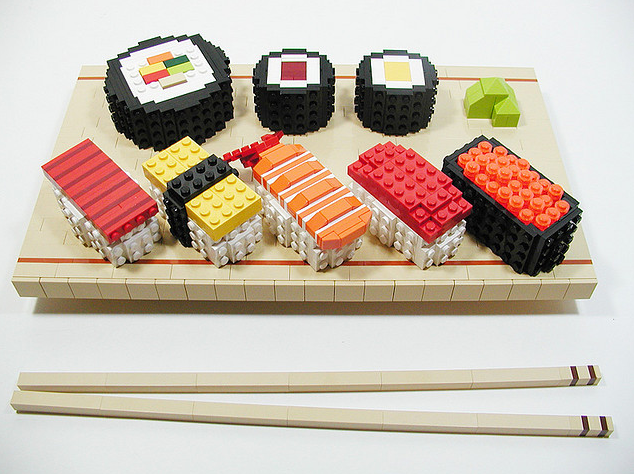our favorite finds from the front lines of food
Wine, women and television: Red Wine Is the Drink of Choice on ‘Scandal’ and ‘The Good Wife’ "The way wine is used as a character device in shows like these can tell us a lot about how wine is viewed in popular culture. As much as a small group of wine lovers would like to believe wine has gone mainstream, in fact its portrayal on television as a character prop suggests that many Americans still view it as somehow effete, foreign or, at least, no different than any other alcoholic beverage. (New York Times)
Boldly going where no cafe has gone before, a new science-inspired restaurant opens in MIT's backyard of Cambridge, Massachusetts. The restaurant, Cafe ArtScience has a sister incubator / exhibit space called Le Laboratoire. "Le Laboratoire also has been where Edwards incubates his many offshoot companies. Theres’s WikiFoods, a company that develops edible food skins that are looking to replace plastic packaging and the oPhone, a gadget that sends olfactory messages." (Wired)
Africa's Slow Food, in pictures: "This year Lavazza Coffee and Petrini collaborated on Lavazza’s annual Earth Defenders Calendar to celebrate the farmers of Africa’s Slow Food movement—individuals who safeguard the land, crops and resources in their local communities. The 2015 calendar, featuring photography by Steve McCurry, is a sumptuous visual treat that opens a window into a culture and livelihood most of us know very little about." Proceeds for all calendar sales will go to the “10,000 Food Gardens in Africa” project. (Forbes)
Guilty pleasure read: Jeremiah Tower — just the name is memory lane of 1970s and 80s California cuisine. Is he coming back on the scene? The writer John Birdsall on Tower: "as a know-nothing kid cooking in San Francisco in the late 1980s, I envied and feared Tower like nobody else I ever thought about. Jeremiah was the Jay Gatsby of my own longing for ascendancy, the distant idol of my ambitions, trailed by a rumor-fueled narrative of trouble that, to me, only made him more heroic." (Eater)



